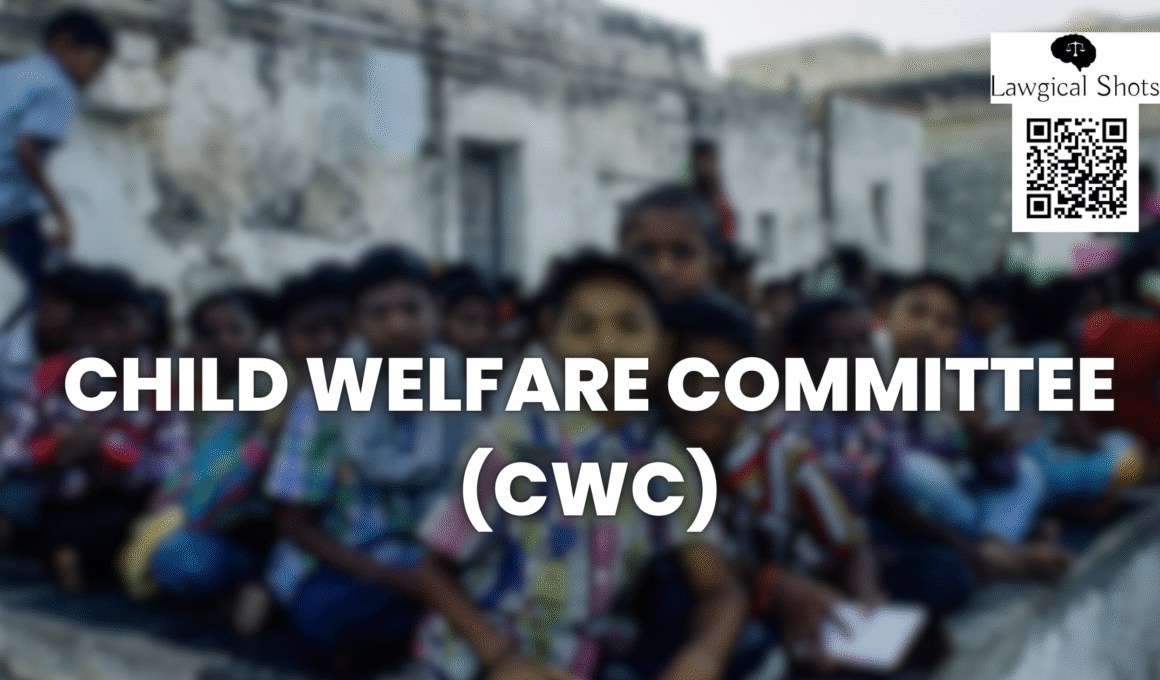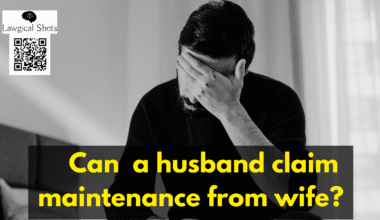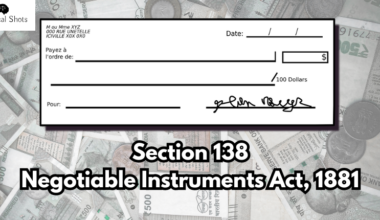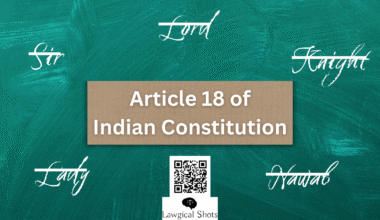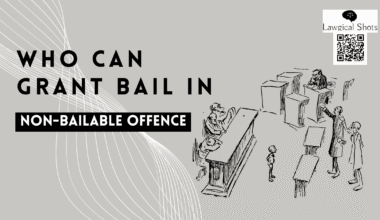Children in their homes bring sunshine to the dull walls. But those who end up committing crimes, or those vulnerable due to orphanage, abandonment or surrender, need special attention. In India, the Juvenile Justice (Care and Protection of Children) Act, 2015 lays out protective measures and other aspects related to children in conflict with law, and those in need of care and protection. Setting up a Child Welfare Committee under JJ Act is another requirement. Popular among practitioners as CWC, the Committee has special powers and functions to ensure safety and care for such children. Detailed aspects related to the CWC under Juvenile Justice Act have been discussed hereunder in detail. Let’s dive deeper to understand the “state of being” of the CWC.
Child Welfare Committee under JJ Act 2015
The Juvenile Justice (Care and Protection of Children) Act, 2015 lays about constituting a Child Welfare Committee, that is CWC. Section 27 of the Act requires the State Government to constitute one or more CWCs for every district. The said Committee has to exercise powers and functions, as conferred, related to children in need of care and protection under the JJ Act. The State Government also needs to ensure that the members of the Child Welfare Committee under JJ Act are trained and sensitised.
Child Welfare Committee Members
As per CWC provision under JJ Act, the Committee shall consist of a Chairperson and 4 other members as appointed by the State Government. One of these Child Welfare Committee members should be a women, and one should be an expert on matters related to children. The District Child Protection Unit provides a Secretary and other staff as required for the effective functioning of the CWC. Members are appointed to the Committee for a period of 3 years.
To be qualified as a member of CWC, a person should have one of the following educational qualifications:
- A degree in Child Psychology
- A degree in Psychiatry
- A degree in Law
- A degree in Social Work
- A degree in Sociology
- A degree in Human health
- A degree in Education
- A degree in Human Development
- A degree in Special Education for differently abled children
Along with the aforementioned educational qualification, one should have active involvement in health, education or welfare activities pertaining to children for seven years. As an alternate, one may be a practising professional having a degree in child psychology or psychiatry or law or social work or sociology or human health or education or human development or special education for differently abled children.
Also explore – Can a Muslim couple adopt a child?
It may be noted that while the specifics of education field are mentioned, there is no exact requirement of whether it should be a Masters degree or Doctorate level. It means that mere graduation is enough in the specified fields of education.
Who cannot be on Child Welfare Committee Members List
- A person having past record of violation of human rights or child rights,
- A person who has been convicted of an offence involving moral turpitude which has not been reversed or granted full pardon,
- A person removed or dismissed from service of the Union or State Government, or a PSU (owned or controlled by Central or State Government),
- A person who has ever indulged in child abuse or employment of child labour or immoral act or any other violation of human rights or immoral acts, OR
- A person who is part of management of child care institution in a District.
Termination of CWC Membership
The State Govt. is empowered to terminate any member of CWC if:
- He/she is found guilty misusing power vested on him/her under the JJ Act;
- He/she is convicted of moral turpitude which is neither reversed nor granted full pardon;
- He/she fails to attend CWC proceedings without any valid reason – consecutively for 3 months OR he/she fails to attend minimum ¾ of Committee sittings in a year.
Role of Child Welfare Committee
- The Committee takes cognizance and receive children produced before it;
- It inquires issues related to children, or affecting their safety and well-being;
- The Committee may direct the Child Welfare Officers or probation officers or District Child Protection Unit or non-governmental organisations to conduct social investigation to submit a report;
- The Child Welfare Committee under JJ Act conducts inquiry to declare fit persons for care of children in need of care and protection;
- It may direct placement of a child in foster care;
- The CWC ensures care, protection, appropriate rehabilitation or restoration of children in need of care and protection, based on individual care plan of such a child, and pass necessary directions to parents or guardians or fit persons or children’s homes or fit facility;
- The Committee selects registered institution for placement of each child requiring institutional support, based on age, gender, disability and needs, subject to the institutional capacity;
- The CWC is required to conduct at least 2 monthly inspection visits of residential facilities for children in need of care and protection. It may recommend the District Child Protection Unit and the State Government for improving quality of services;
- The CWC is responsible for certifying the execution of the surrender deed by the parents. It further needs to ensure that they get sufficient time to reconsider their decision and making efforts to keep the family together;
- CWC needs to ensure that efforts are made for restoration of abandoned or lost children to their families after following due process;
- The Child Welfare Committee under JJ Act is the authority responsible for declaring a child who may be an orphan, abandoned or surrendered, legally free for adoption after due inquiry;
- It may also take suo motu cognizance of cases, or reach out to children in need of care and protection, not produced before the Committee. Such a decision should be taken by at least 3 CWC members;
- The Committee may take action for rehabilitation of sexually abused children reported as children need of care and protection by the Special Juvenile Police Unit or local police under the POCSO Act;
- The CWC deals with cases referred by the Juvenile Justice Board regarding child found not in conflict with law but in need of care and protection as per Section 17(2) of JJ Act;
- The Committee needs to coordinate with the police, labour department and other agencies involved in the care and protection of children with support of the District Child Protection Unit or the State Government;
- For complaint of abuse of a child in any child care institution, the Committee conducts inquiry and issues directions to the police or the District Child Protection Unit or labour department or childline services;
- The Child Welfare Committee under JJ Act gets access to appropriate legal services for children, as supported by the government;
Functioning of the Committee under JJ Act
- The CWC is required to meet at least 20 days in a month to observe rules and procedures for its business transactions;
- The Committee shall visit Child Care Institution to check its functioning and well being of children. The said visit is considered as a CWC sitting;
- A child in need of care and protection may be produced before a CWC member to be placed in Children’s Home. For when the Committee is not in session, the said child may be produced before a fit person;
- The majority opinion prevails in case of difference of opinions among CWC members. In case of no majority, the decision of Child Welfare Committee Chairperson prevails;
- The Committee is allowed to proceed even in absence of one of the members, which does not affect the validity of proceedings at any stage.
- In case constitution of new CWC is delayed, the Child Welfare Committee under JJ Act of a nearby district assumes responsibility in the intervening period.
Accountability of the CWC
The CWC has to submit a report to the DIstrict Magistrate for the DM to conduct a quarterly review of its functioning. Any grievance against the role of Child Welfare Committee is redressed by the District Magistrate. Any affected child or someone connected with the child may file a complaint with the DM, who in turn hears both the parties and may take cognizance of action of the Committee to pass appropriate order.
Powers of CWC
The Child Welfare Committee under JJ Act is authorised to dispose of cases for care, protection, treatment, development and rehabilitation of children in need of care and protection. CWC has to provide the basic needs and protection to them. The CWC is empowered to exclusively deal with all proceedings of Juvenile Justice related to children in need of care and protection.
